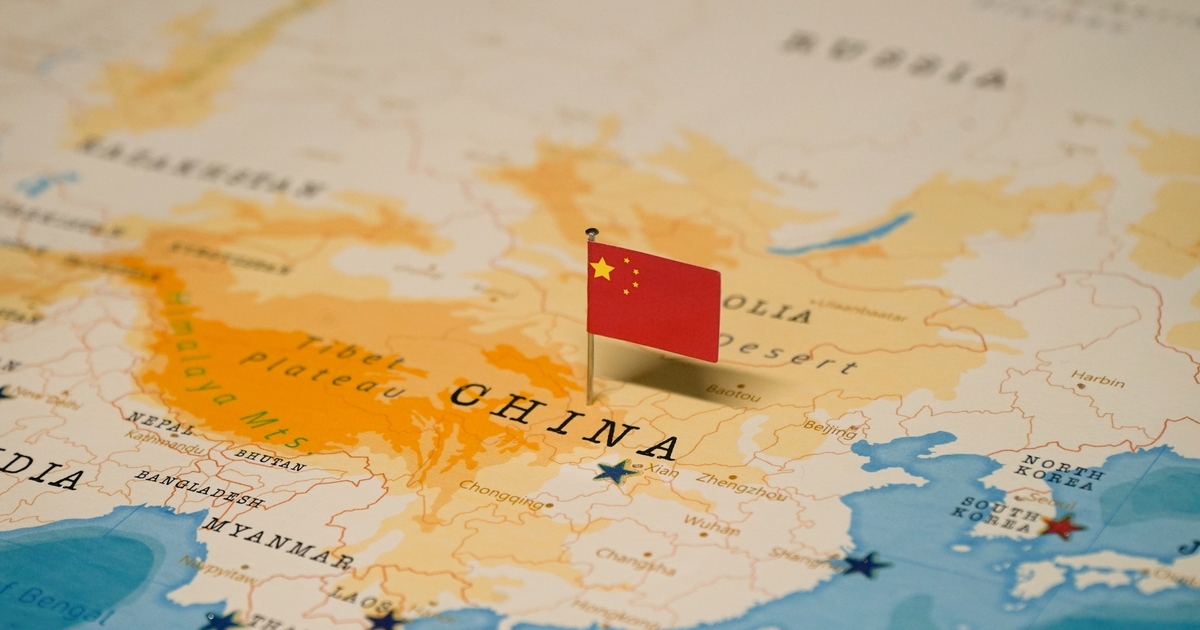China: US Republicans’ Real Existential Threat
There is a mortal threat to the Republican Party on the horizon – but it’s China, not demography.
July 18, 2020

Over the past decade, Republicans have made a lot of political hay by fear-mongering about their (mostly white) constituents becoming a minority in the United States. That has yielded them plenty of campaign contributions.
Contrary to the conventional wisdom, Republicans may in reality even benefit if Democrats become overly reliant on their supposed demographic advantages.
Fear US demography or China?
But this is by no means an all-clear signal for the Republicans.
There is indeed a mortal threat to the Republican Party on the horizon. But it is China, not demography.
And as much as President Trump appears to zero in on the challenge, Republican politicians seem as oblivious to it as dinosaurs calmly grazing beneath a streaking asteroid.
Contrary to their thinking, the world of Chinese supremacy is not a distant possibility that can be safely dismissed at the country-club bar as if it were another long-term climate-change scenario. The rise of China is underway. In fact, we are well into its first few decades.
The China challenge beyond the Coronavirus
For all the attention that China commands in the United States because the novel coronavirus leapt out of a Wuhan wet market, the real China challenge lies in day-to-day economic affairs – not in the arena of health or even military security.
Once we Americans emerge from our current political fog, we will be shocked to see the practical effects of Chinese economic supremacy that are all around us. And once we realize that in full, our expectations of our leaders and government will change drastically.
The return of realism?
In that process, a political commodity that has been in ever shorter supply in the U.S. body politic — realism — will re-emerge.
To meet our China challenge, Americans do not need narratives that glorify heroes who resemble us and villainize supposed enemies who do not. Dealing with China is not — as President Trump seems to assume — like World Wrestling Entertainment episodes. We simply need the facts about the problems we face.
As a bigger sense of realism filters in, Americans will stop tolerating amateurs and bumblers playing big roles. Why? Because it will become dangerous to pretend the unfolding of history is just another version of reality television. That is the Donald Trump approach to dealing with China.
Instead, we will find ourselves demanding officials with the competence to solve problems. Imagine that: A United States where experts are popular once again among populists.
What we have taken for granted — or even arrogantly ascribed to some kind of natural virtue — will weigh all the more heavily on Americans as we realize what an advantage we had simply by living in the world’s largest national market.
Market size has surely made life easier for Americans in ways that are easy to miss.
The biggest market sets the rules
For a century the world has oriented itself in the direction of American practices. Almost any time it needed a standard, it was a U.S. technology standard. In addition, businesses and leaders, including corrupt ones in the farthest corners, did whatever they could to obtain U.S. attention and favors.
As a result, life became easier for the average American Jane and Joe.
The absence of that global supremacy-by-birth will become painfully evident now that China’s market has overtaken that of the United States.
Economic costs of the US being number 2 or 3
Beyond having to try harder, here is a top 10 list of the economic costs of being number two or three:
1. U.S. businesses and consumers will be more vulnerable to external business cycles.
2. Living standards will fall as lower dollar demand cuts Americans’ purchasing power.
3. A falling dollar will also cut U.S. living standards by stoking inflation.
4. Energy will become more expensive, whether carbon-based or renewable.
5. Investment will drop as interest rates rise due to lower inward investment.
6. Housing costs will rise with higher interest rates.
7. Less cutting-edge technology will be produced domestically.
8. Less cutting-edge medicine will be produced domestically.
9. The auto industry will move to China as production shifts to battery-powered vehicles.
10. Exporting will get harder as foreign authorities set labor and environmental standards.
A US running in place
As sobering as the list above reads, and as much as it has material implications for the U.S. economy, one does not have to live in the largest or most powerful country on the planet in order to have a decent standard of living.
But we will need to raise our game. Underlying nearly every case of smaller countries matching the living standard of larger trading partners, there is a story to tell about that nation reaching for high standards of governance and realism in assessing its own economic and social problems compared to their bigger partners and competitors.
Like Canada?
Canada, for instance, has had to combat falling living standards and inflation due to weakness in the Canadian dollar.
And it has had to maintain a strong investment climate and affordable housing through the interest-rate spikes that come with a low-volume currency. It has done so by building one of the world’s most capable civil services.
Like Germany?
In Europe, Germany has successfully battled high energy costs, the threat of technology obsolescence, vulnerability to continental business cycles and the loss of export markets.
Europe’s largest economy has done so by building a steady supply of down-to-earth, problem-solving political leaders. Their stock in trade is to pay meticulous attention to the details of domestic and foreign economic and social policy.
This attention to detail is paying off in lives and deaths. While Germany has more COVID 19 cases than all but 16 other countries as of July 18, it has managed to keep deaths low. This reflects competent management and mass testing.
Needed: Excellence not grandstanding
We Americans, bereft of the gravitational pull of living in the world’s largest integrated market, will soon demand no less from our leaders. Indeed, Americans of all political persuasions will demand it.
This represents a significant change for the U.S. body politic
A Republican Party wholly unprepared
The Republican Party is completely unprepared to meet that demand. The party has devolved from its previous standards of excellence and competence and made itself incapable of delivering high levels of competence in governance whether at the state or federal level.
Instead of sticking with its past performance, it has made a political virtue of belittling and demeaning competence of all kinds.
And by running against competence, it has found itself increasingly running on arrogance, notably in healthcare — and even deliberate negligence, as in the case of pointless government shutdowns.
The Republicans’ economic incompetence
Consider macroeconomic policy. The Republican Party has spent the last 12 years turning U.S. fiscal policy and the Federal Reserve into purely political tools.
When one of theirs is in the White House, it acted as a gas pedal under the foot of congressional Republicans. And it chose to become a near-complete brake for Democratic presidents, no matter how sensible or common-sensical their policy proposals were.
In that process, the Republican Party has banished the politicians, staffers and analysts who presumably worked on setting economic policy for the good of the country.
Just one example: Having closed U.S. borders and ripped up U.S. trade agreements, the Trump Administration has repulsed the elected officials and civil servants in its ranks who used open trade and immigration to keep the country resilient and flexible.
As a result, Republicans no longer have the capacity to implement the kinds of outward-facing policies Germany has deployed to maintain its export and technology edge.
A long-term bet against realism
We Americans generally are a forgiving bunch. We do not blame our politicians forever for their past policy mistakes. For example, voters knew Iraq had no weapons of mass destruction when they reelected George W. Bush.
The rise of China is different. It will rekindle a popular realism for which Republicans are unprepared.
Republicans have made a long-term bet against realism and competence in favor of serving its main electoral bases’ self-glorifying narratives. In a word, the Republicans opted in favor of cynicism.
That they have done so at just the moment when another country – China – has surpassed the United States for the first time in a century translates into a profound existential threat for their political party.
Handled correctly, it could also spell a great opportunity for Democrats to do well by doing some good.
US: Demography Is Not Political Destiny
China: US Republicans’ Real Existential Threat
Waking Up to the US as No. 2
Takeaways
There’s a mortal threat to the Republican Party on the horizon – but it’s China, not demography.
The Republican Party is incapable of high levels of competence in governance. By running against competence, it runs on arrogance.
Americans are forgiving and don’t blame politicians for their past mistakes. But the rise of China will rekindle a popular realism for which Republicans are unprepared.
The Republican Party has spent the last 12 years turning fiscal policy and the Federal Reserve into purely political tools.
Republicans have made a long-term bet against realism and competence in favor of serving its bases’ self-glorifying narratives.
